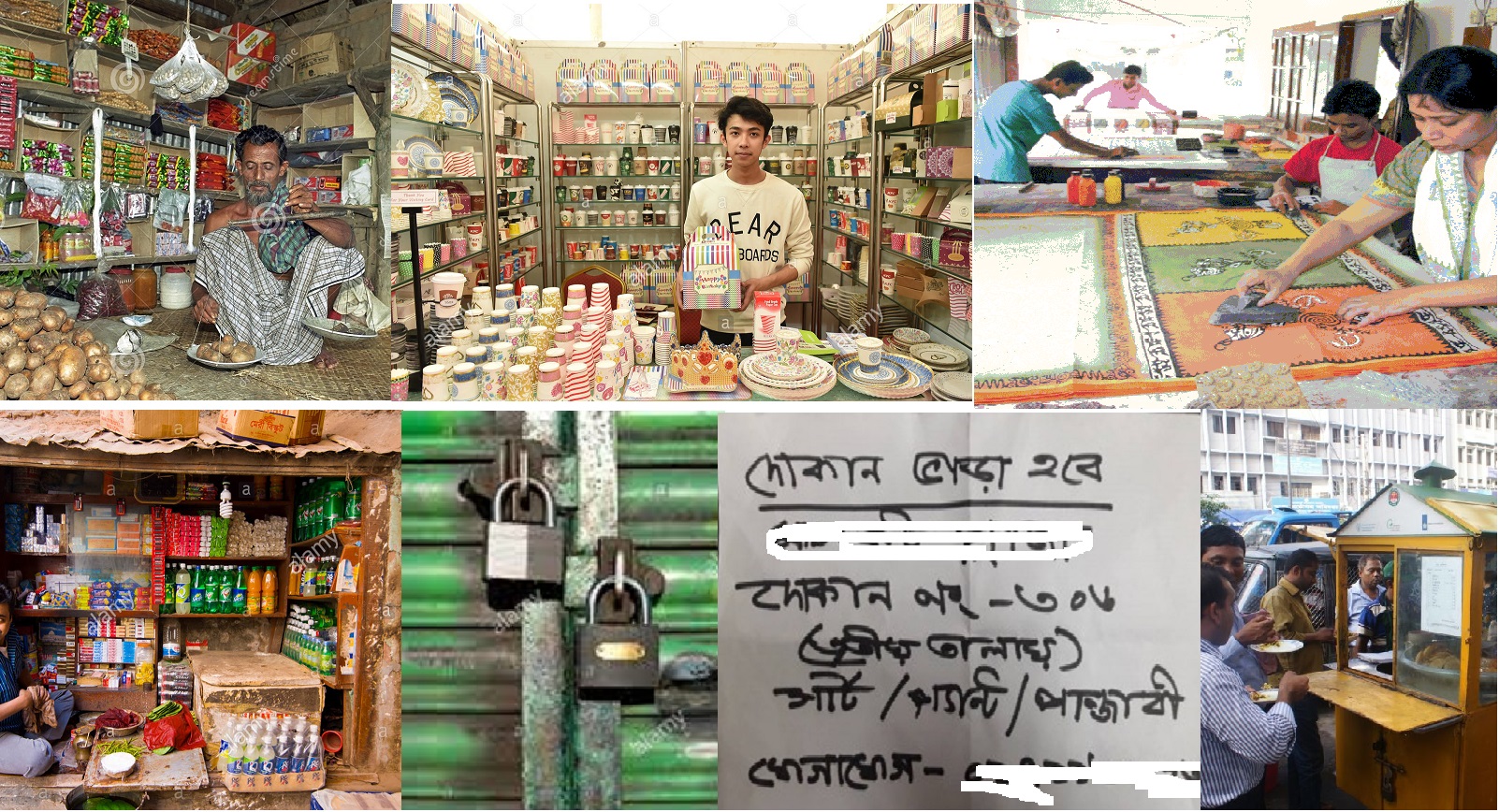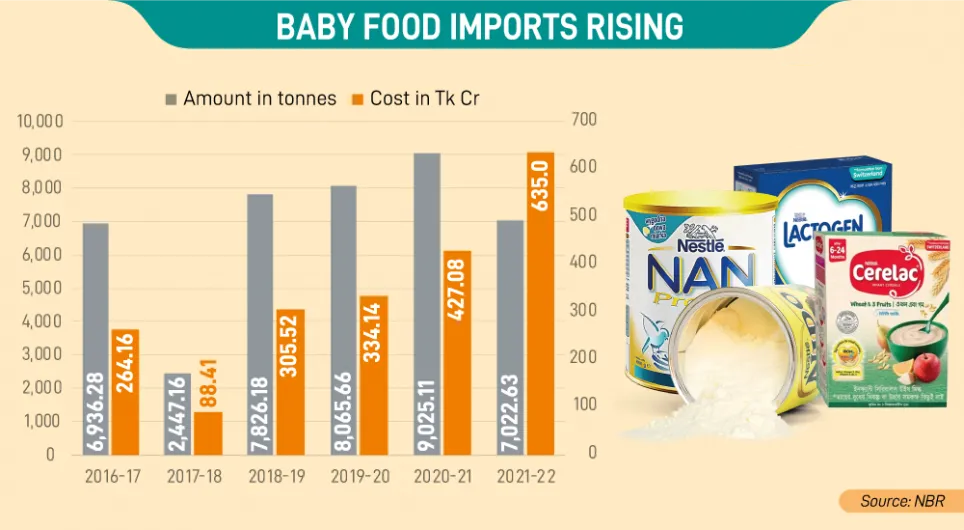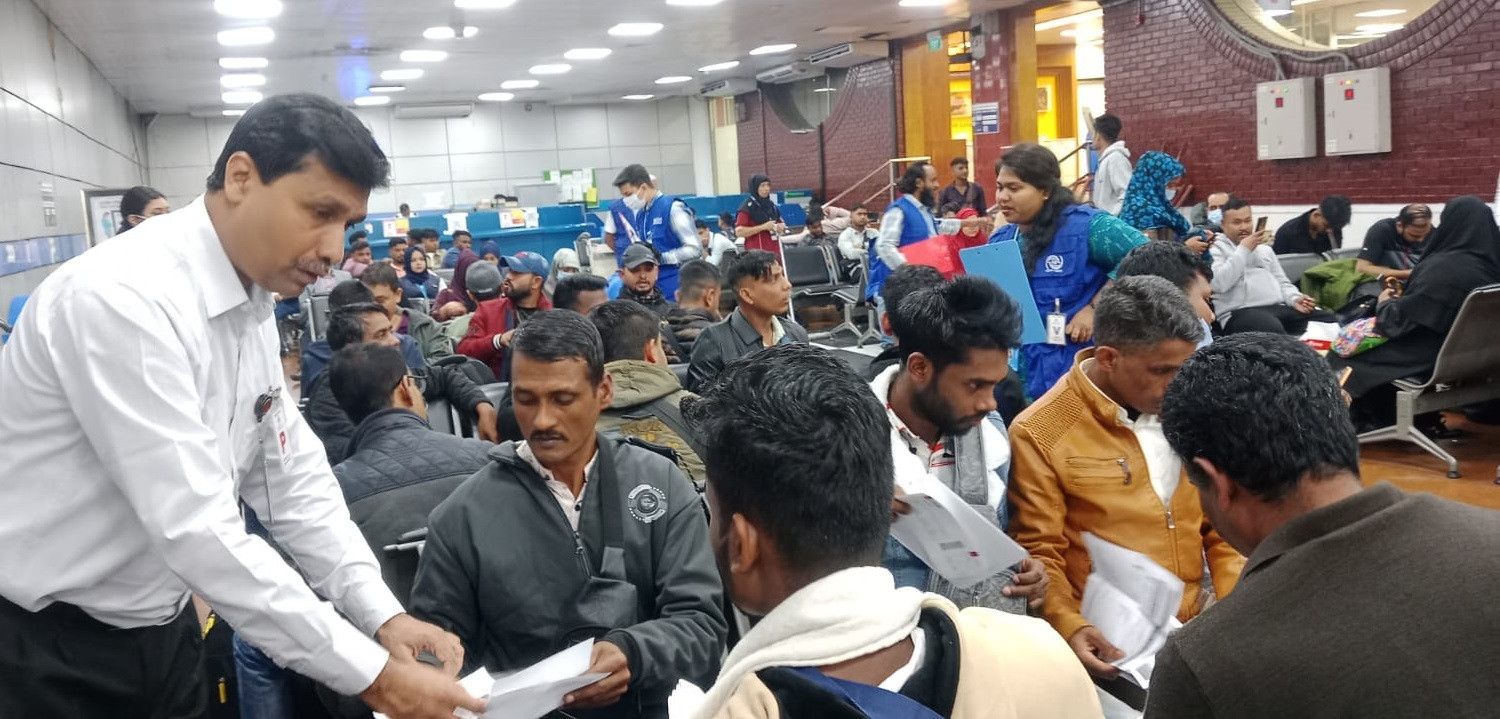A large number of small traders have been forced to close their businesses in the country due to a severe financial crisis caused by the Covid-19 pandemic.
Small businesses, especially those which run on small profit margins, have become vulnerable as they may not have cash reserves to overcome the situation.
Small companies are suffering more than others in the private sector because they are inherently vulnerable.
Alamgir, now a tea-cigarette seller in Rupganj, told The Financial Post, “I used to do Jamdani sari business in Rupganj. But, my business has dropped due to coronavirus.”
“Moreover, flood hit my house for last one month. Now I am forced to sell tea and cigarettes.”
“My wife is making Jamdani in my home as the handloom is not submerged in floodwater. Please pray for us to recover the situation,” he told his correspondent.
Jamal Hossain used to supply raw materials to a shoe factory in Dhaka. But the corona outbreak caused factory losses. They stopped taking goods from Jamal.
In this situation, he has returned to his village in Bagerhat with his family. Jamal now drives a rickshaw.
Many small entrepreneurs like Alamgir and Jamal are forced to close down their businesses. They are not able to do business as usual in the corona situation.
They are trying to do something new as their income is declining. And this situation is not only in the capital, small traders across the country are in trouble because of corona.
Not only low-income traders but also big businessmen are not in good condition. Many of them are trying to do something new as well as old business.
Sohel started a fast-food shop at Mirpur Section 13 in the capital after finishing university studies. Most of the buyers in his shop are students from nearby schools.
Educational institutions have remained closed since the last week of March on the government’s orders. As a result, Sohel’s business dropped drastically. In this situation, he left the shop last month.
Sohel said: “Even though there is no income, I have to pay salaries to two employees of my shop. There is rent. So, I was forced to leave.”
According to a survey by private research institutes Power and Participation Research Centre (PPRC) and BRAC Institute of Governance and Development (BIGD), in the last three months (April-June), at least 17 per cent people have written their names on the list of new unemployed. And 21 percent have fallen below the poverty line.
If the corona situation does not improve by December, analysts say the country’s economic crisis will worsen.
Not only that, the pressure of about 1 million expatriates to return to the country has been added to the burden of the local unemployment.
Most of the people returned to the country to save life from the deadly coronavirus are now in danger as they can't get back to workplaces soon.
Again, there is no opportunity to work in the country. As a result, the problem of unemployment has come to the fore as the biggest crisis.
According to the ILO, 70 percent of workers in the Asia-Pacific region are at risk of losing their jobs.
The situation in Bangladesh is not pleasant at all. The exact number of new unemployed workers will not be known right now. However, Bangladesh is also at high risk in Asia.













